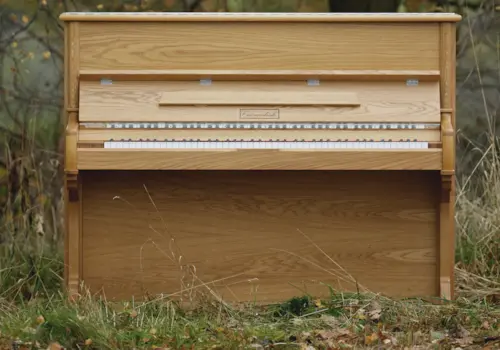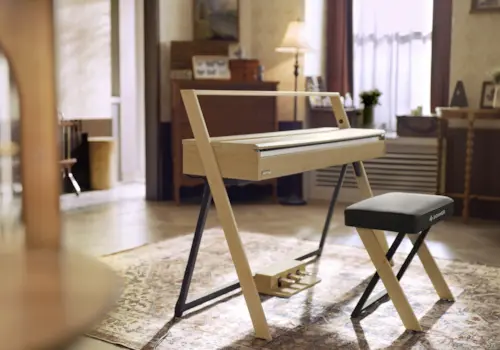22 August 2017
|
The music of NASA's Voyager Golden Records presented by Royal College of Music student Alec Coles-Aldridge.
On 25 August 2012, the Voyager 1 spacecraft entered interstellar space, the matter that exists between the star systems in a galaxy. This achievement made Voyager 1 the furthest travelling man-made object in history. Close behind is Voyager 2, the only spacecraft to have visited Uranus and Neptune.
Remarkably, travelling on each Voyager spacecraft is, amongst other material, Wolfgang Amadeus Mozart’s (1756-1791) Queen of the Night aria from The Magic Flute and Johann Sebastian Bach’s (1685-1750) Prelude and Fugue No 1 in C major from Book Two of The Well-Tempered Clavier. These pieces of music and a selection of other compositions feature in the Voyager Golden Records – phonograph records attached to the spacecraft – whose purpose, as stated by President Jimmy Carter (b.1924), is ‘if one such civilization intercepts Voyager and can understand these recorded contents, here is our message: this is a present from a small distant world, a token of our sounds, our science, our images, our music, our thoughts, and our feelings.’
Inevitably, any consideration of the Voyager Golden Record’s musical content will open a host of questions. Was the chosen music suitable? Why were those particular pieces selected? What impression would it make on extraterrestrial life? With regards to the only piece of keyboard music present, the choice of Bach’s Prelude and Fugue in C performed by Glenn Gould (1932-1982) is understandable.
The piece is less than five minutes thus saving precious space on the record. The piece demonstrates the piano without any additional noise from an orchestra (as a concerto would) and it demonstrates a work by a composer widely considered to be one of the greatest western composers of all time. The fact that the piece is from The Well-Tempered Clavier is significant, as the choice may have been driven by a desire to represent this monumental series of Preludes and Fugues.
Prelude from Book 2 of The Well-Tempered Clavier performed by Glenn Gould:
Trying to conclude the exact reasoning behind their choice is difficult. However, it does lead you to a more personal question: what would I choose? My answer, Frédéric Chopin’s (1810-1849) Nocturne in B flat minor Op 9 No 1 performed by Vladimir Ashkenazy (b.1937). The opening notes fall like droplets and give way to some of the most beautiful music ever written – that’s in my humble opinion. Ashkenazy fearlessly moves between gently caressing the notes and energetically driving the music forwards.
Nocturne in B flat minor Op 9 No 1 performed by Vladimir Ashkenazy:
However, the most interesting insight into the Golden Records is from Jason Wright, an associate professor of Astronomy and Astrophysics at Pennsylvania State University who wrote an article in August 2017 with the conclusion that the real audience for the records is actually Earth. In order to create the records we had to reflect and consider what we thought was a fitting representation of our species. The music scholars Stephanie Nelson and Larry Polansky captured this truth in their research report regarding the Voyager Records stating ‘by imagining another listening we reflect back upon ourselves and open ourselves to new cultures, music, understandings, other possibilities and different worlds.’
By Alec Coles-Aldridge. Alec is a student at the Royal College of Music studying for a Bachelor of Music Degree.







